#Jack THorne
Explore tagged Tumblr posts
Quote
The truth is a beautiful and terrible thing, and should therefore be treated with great caution.
Jack Thorne, Harry Potter and the Cursed Child
#Jack Thorne#motivation#quotes#poetry#literature#relationship quotes#writing#original#words#love#relationship#thoughts#lit#prose#spilled ink#inspiring quotes#life quotes#quoteoftheday#love quotes#poem#aesthetic
104 notes
·
View notes
Note
Can you talk about the cursed child?
I have two main questions when it comes to The Cursed Child. The first is... why was this project made? Because it wasn’t for the money, and it wasn’t for the fans, so I have to assume it was for JK Rowling herself. And my second question is - who is Jack Thorne????
Because he wrote it. John Tiffany is a director who works with Thorne and it's based on a “story” by JKR. But Jack Thorne is a kinda highbrow, kinda indie English playwright, and he clearly wrote most if not all of it. The biggest thing he had done at the time was a stage adaptation of indie Swedish vampire film Let the Right One In, so back 2016 I was asking myself - why is he attached to this project. (Is he related to JKR? Did he win a contest? Is he just that charming?)
But now I’ve got a theory. See, Jack Thorne has one other very important credit. He is the showrunner and head writer of the well-regarded HBO His Dark Materials TV show adaptation… AND that TV show and Cursed Child were in production at the exact same time. There’s no real way of knowing which project came first - they were both announced in 2015, and Cursed Child was announced first, but then a stage play needs a whole lot less pre-production than three seasons of a prestige television show.
What I think (but cannot prove) is this: JKR got wind of the His Dark Materials HBO TV series, and thought ‘I want one of those too.’ Especially because she is now in the process of getting exactly that.
I can’t actually prove that JKR is even aware of the His Dark Materials franchise… but I very much suspect that she is. Northern Lights/Golden Compass was released two years before Philosopher's Stone, and… a British author, YA , fantasy, seems like you’d want to read that for market research purposes alone - or at least keep tabs on it to make sure it was doing well. I also think there’s a similar vibe to the worldbuilding, a certain kind of ‘urban fantasy, but make it pre-industrial revolution’ that you don’t get with like, Edith Nesbit, the fantasy writer JKR most often credits as an influence.
Now His Dark Materials was a failed film series. They made one in 2007 with plans to make more, and it didn’t really go anywhere. I was a huge fan of both HDM and HP at the time, and I liked the film… but even then I thought it was hurting itself by trying so hard to be Harry Potter, when the tone of HDM was always darker and more sinister. It was nice to watch the HBO show treat the source material as basically a gritty adult drama (which it always was, just told through an intelligent child’s POV.)
Marketing of movie vs marketing of TV show:
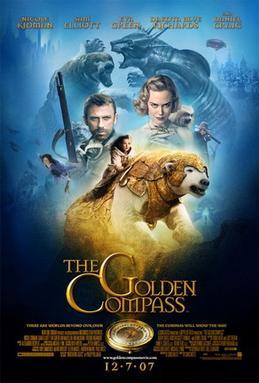
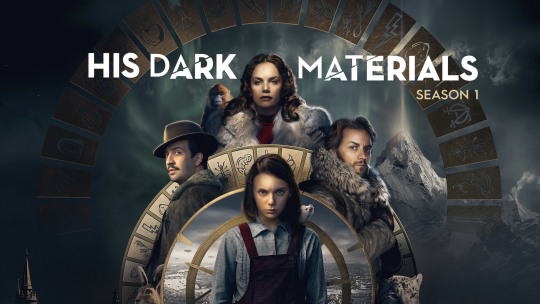
Movie Lyra vs TV show Lyra:
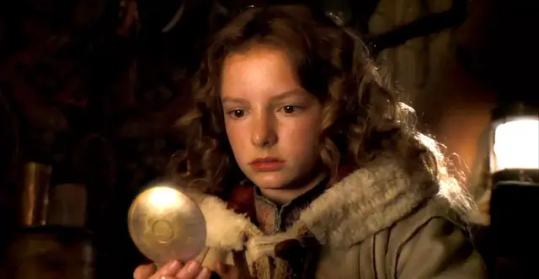
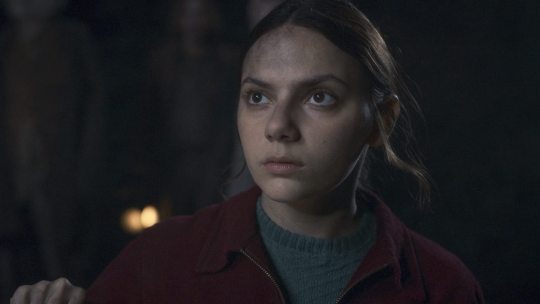
HOWEVER. I think it would be very easy, if you were JKR, to see the new series as an adaptation of a children's book (comparable to Harry Potter), only marketed to adults. And you might think... that's kind of a cool idea. So I don’t know who approached who. But I do think that at some point Jack Thorne and J. K. Rowling were in the same room, and someone suggested… why don’t we give Harry Potter a little bit of the His Dark Materials treatment.
Because both vibe-wise and theme-wise, there are A LOT of comparisons you can make between the HBO His Dark Materials and The Cursed Child. They’re both fantasy with a kind of gloomy and oppressive feel. They focus a lot on bad parents, especially parents unable to communicate with their kids. They both feature alternate universes as a major theme, and the main plot of both revolves around a (doomed) attempt to resurrect a sacrificed innocent, and various adults attempting to separate a pair of friends. (The relationship between Albus and Scorpius is easily the best part of Cursed Child. Especially Scorpius, who is lovely.) But like… no one wanted a version of Harry Potter that felt like a knockoff version of His Dark Materials.
To me, Cursed Child feels less like an adaptation, and more of an attempt to recontextualize the original Harry Potter books into something more serious and more impressive. Cursed Child reframes Harry’s whole deal as being caught in a cycle of abuse due to the Dursleys… which the show frames so much more threateningly than the books ever did. (Harry himself is the titular 'cursed child,' which amusingly means that the full title is essentially Harry Potter and Harry Potter.)
This play also does not frame Ron/Hermione as the best marriage... which makes me think of the when JKR told the Sunday Times
I wrote the Hermione/Ron relationship as a form of wish fulfillment. That's how it was conceived, really. For reasons that have very little to do with literature and far more to do with me clinging to the plot as I first imagined it... if I'm absolutely honest, distance has given me perspective on that. It was a choice I made for very personal reasons, not for reasons of credibility.
And then Cursed Child gives us a little Hermione/Snape, and we know how JKR feels about Snape. We revisit a lot of Slytherin characters actually, and it turns out they’re not just bad guys! Albus is in Slytherin (even though the end of Book 7 was written in a way that REALLY heavily implied he would ask to be Gryffindor just like Harry did.) The ‘all Slytherins are baddies’ thing seems to be an aspect of the worldbuilding that JKR is attempting to retcon. The earliest example of this is the 2008 interview where she talks about “Slughorn galloping back with Slytherins [to rejoin the battle of Hogwarts] but they’d gone off to get reinforcements first,” which… does not happen. That is not a thing that happens in the book. Also she was okay with the last three Potter films framing Draco way more positively than the books do, a trend which continues into Cursed Child. Draco’s easily the best parent in the whole thing.)
And (possibly the most important bit of recontextualization…) I think Cursed Child was supposed to make the Epilogue seem good, instead of something that all her fans either made fun of… or completely ignored.
In a lot of ways, I think JKR is doing a George Lucas, but instead of going back and re-cutting, re-mastering and adding to the original work the way he is - she’s writing more and more sequels (and more and more additional material) in an attempt to make the problems of the earlier books go away.
I could talk for a very long time about The Cursed Child. Yes, everyone is out of character, yes it’s world breaking, it contradicts the original series all the time, it doesn’t work structurally, it's stupid that the villain is Voldemort's secret daughter Evil Tonks, and it reads like fanfiction (in the sense that it uses tons of fanfiction tropes, often not super well.) I probably will talk about that stuff more eventually, but first I wanted to make sense of why it even exists, in the first place.
#hp#the cursed child#his dark materials#hdm#his dark materials hbo#draco malfoy#jkr critical#anti jkr#jack thorne
41 notes
·
View notes
Text

"An Almost Christmas Story" New Disney Television Animation Animated Holiday Stop-Motion Short Directed By David Lowery And Produced By Academy Award-Winner Alfonso Cuarón, Coming To Disney+ This November.
Disney Branded Television announced a new Disney Television Animation animated stop-motion short film “An Almost Christmas Story” slated for a November release date on Disney+.
The musical short produced by Disney Branded Television, Disney Television Animation and Cuarón’s Esperanto Filmoj, in association with Titmouse and Maere Studios, and with animation services by 88 Pictures. "An Almost Christmas Story" is the first original short from Disney Television Animation since "Hamburger High" (2016). It joins Disney TVA's roster of stop-motion projects ("Mickey Mouse and the Magical Snowy Holiday", "Mickey Saves Christmas", "Mickey And Friends: Trick or Treats", Mickey's Christmas Tales" and "Rhona Who Lives By The River")
The celebrated creative team includes David Lowery (director, screenplay and producer), Cuarón (producer and story), Gabriela Rodríguez (producer), Jack Thorne (story and screenplay), Nicholas Ashe Bateman (creative designer) and Daniel Hart (composer).
"An Almost Christmas Story" follows Moon, a curious young owl who unexpectedly finds himself stuck in a Christmas tree destined for Rockefeller Plaza. In his attempts to escape the bustling city, Moon befriends a lost young girl named Luna. Together, they embark on a heartwarming adventure, discovering the magic of the holiday season and forming an unlikely bond as they journey back home to their parents. “An Almost Christmas Story” is inspired by the true events of a tiny owl, Rocky - short for Rockefeller, found and rescued from the Rockefeller Center Christmas tree in 2020.
An Almost Christmas Story features the voice talents of Cary Christopher (FX "American Horror Story") as Moon, newcomer Estella Madrigal as “Luna,” Jim Gaffigan (Pixar Animation Studios "Luca") as “Papa Owl, Mamoudou Athie (Pixar Animation Studios "Elemental") as Pelly, Alex Ross Perry (Walt Disney Studios "Christopher Robin") as Dave The Dog, Gianna Joseph ("Star Trek Into Darkness") as Peaky, Phil Rosenthal ("Everybody Loves Raymond") as Punt, Natasha Lyonne (Cartoon Network Studios "Steven Universe" franchise) as Pat and John C. Reilly (Walt Disney Animation Studios "Wreck It Ralph" franchise) as The Folk Singer.
An Almost Christmas Story features a live orchestra score by Daniel Hart (Walt Disney Studios "Peter Pan & Wendy"), the short features 2 brand new original songs by John C. Reilly.
An original album featuring the songs and score of the short by Walt Disney Records will release on November 2024.

#An Almost Christmas Story#David Lowery#Jack Thorne#Gabriela Rodríguez#Ashe Bateman#Alfonso Cuarón#Titmouse Inc#Esperanto Filmoj#Maere Studios#88 Pictures#Disney Television Animation Shorts#Disney TVA Shorts#Disney+#Disney Plus#Disney+ Originals#Disney Plus Originals#Disney+ Original Shorts#Disney Plus Original Shorts#Disney+ Original Animated Shorts#Disney Plus Original Animated Shorts
20 notes
·
View notes
Quote
The truth is a beautiful and terrible thing, and should therefore be treated with great caution.
Jack Thorne, Harry Potter and the Cursed Child
#Jack Thorne#motivation#quotes#poetry#literature#relationship quotes#writing#original#words#love#relationship#thoughts#lit#prose#spilled ink#inspiring quotes#life quotes#quoteoftheday#love quotes#poem#aesthetic
246 notes
·
View notes
Text
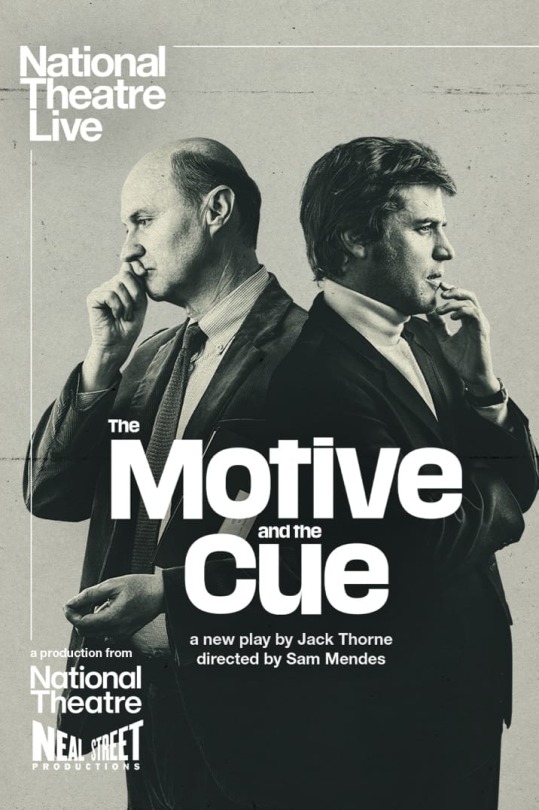

21 notes
·
View notes
Text
Henry Creel is autistic coded in Stranger Things: the First Shadow.
And it is so impactful that he is described as having been a "normal" child before he is overtaken by the darkness of the Upside Down.
Throughout the play, we see Henry struggle with feeling abnormal compared to his peers. And it's made abundantly clear that this has nothing to do with his difficulty communicating, his anxiety, his difficulty with social cues or his sensory issues (all of which are portrayed beautifully on stage), but is instead because of this thing taking over his life.
Henry has always been that "sensitive" boy but he was NORMAL. It acts as such a nice reminder that being autistic is perfectly normal, and perfectly human.
It's such creative autism representation. And I will never get over it.
#stranger things the first shadow#henry creel#autistic henry creel#autism#autistic#actually autistic#autism headcanon#stranger things#upside down#st tfs#jack thorne#louis mccartney#london#west end
34 notes
·
View notes
Quote
The truth is a beautiful and terrible thing, and should therefore be treated with great caution.
Jack Thorne, Harry Potter and the Cursed Child
#Jack Thorne#motivation#quotes#poetry#literature#relationship quotes#writing#original#words#love#relationship#thoughts#lit#prose#spilled ink#inspiring quotes#life quotes#quoteoftheday#love quotes#poem#aesthetic
78 notes
·
View notes
Text
How Lyra and Will suffered as Protagonists in BBC's His Dark Materials
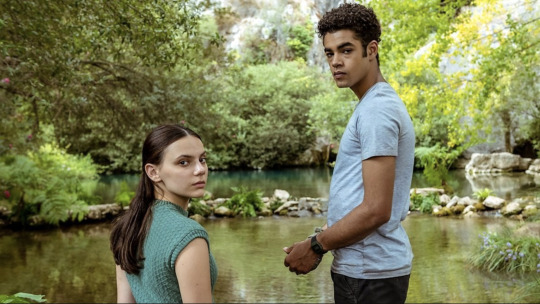
Despite the cast and crews open love for the novels, and the insistent diligence to stay as faithful to the source material as possible — even trying to fill in many of the gaps in the books, as seen in all three seasons of the show — the BBC adaptation never manages to capture the spirit (the only time I felt like it did was in the third season) because of the fact that every character is altered and changed. Not just adaptationally changed either like making a character dumber, softer or harder. They’re completely different characters, separated from the source material e.g. Mrs Coulter is changed from a seductive, calm character to a feral, suicidal character. I must admit, I did like the expanded self harm element that she causes her daemon. However I felt in the novel, if she were to harm her monkey, it would be ‘to keep her lust for power at bay’ rather than shame for herself.
The atmosphere was off yet the events were similar and the complete opposite at the same time. But you can’t have similar events play out with different characterisations, at least not with ‘His Dark Materials’.
Philip Pullman’s characters in ‘His Dark Materials’ are extremely charismatic, but to put it lightly, are not very palatable to say the least. As stated in @clarabosswald’s analysis, there seemed to be this weird need to make��EVERY single character digestible or palatable in some way or another in the BBC adaptation, regardless of it making sense or not. I noticed this upon my re-read of ‘The Northern Lights’ that they even humanised the doctor that sexually assaulted Lyra by grabbing Pantalaimon, which was very troubling.
Now with the opposing ‘The Lion, The Witch and The Wardrobe’ film, they changed the characterisations to make them more sympathetic and accessible to a contemporary audience. They even dug deeper with the character Edmund which I thought was a fantastic choice. But the reason why those character changes worked was because C.S.Lewis was not concerned with building character, he was much more concerned with the place of Narnia itself. He almost used his characters to explore the world of Narnia, e.g. some characters would leave one book and come back 5 books later — which is why some of the later adaptations of Narnia didn’t do as well in the box office as the first one.
The character changes in that film enriched the story without effecting it in a way, because ‘The Lion, The Witch and The Wardrobe’ and the other books are driven by the plot. Where as ‘His Dark Materials’ is primarily driven by characters.
Philip Pullman in total contrast to C.S.Lewis, built the world (you could say he used the world) around the characters in order for them to get to Point A to Point B. But he was not concerned about exploring the multiverse so you could see the entire picture, like with C.S. Lewis.
I heard once that he described writing as wondering through a forest on a path and the path is your story. Theres a difference between the story world and the storyline. And as an Author, your concern is the storyline. It would be easy to step away and stray from the path and explore the forest and admire all the trees, but for him the most important thing to do was to remain on the path and focus on the story rather than the details along the way.
I’m not apposed to different versions of the characters or different storylines. But with ‘His Dark Materials’, those books are driven by specific character traits. And the fact that they changed them, while still being faithful to the events in the story, the story beats either don’t land or don’t hit as hard or don’t make sense altogether.
More specifically with the main characters Lyra and Will, but mostly Lyra since she’s the heart of the story.

Lyra is first and fourmost a liar, which may seem a small part of her character but its huge. Her ability to lie and get her way out of situations is the cause of many events in the books. She’s feral. She’s wild. She’s manipulative. She’s described as a ‘half wild cat’ and a ‘greedy little savage’. She can’t sit still or behave herself. She’s impulsive. She’s a leader. She gets into fights. She gets dirty. She spends all her nights on the rooftops. She’s an extrovert. She’s street smart. She’s selfish. She’s brave.
She’s an emotional and passionate human being. Thats what makes Lyra a real girl, not just a character on the page. These nuanced character traits of hers is how she pushes everything forward in the story.
All of those negative/positive aspects of her character in the books were watered down so much in the series. To the point where alot of them were removed. Not only is that incredibly dehumanising but makes the plot points where “she lies” not land as well or plot points revolving around her “telling the truth” make no sense at all.
The whole reason why she’s called Lyra Silvertongue is because she tricked the bear king with her lies, a trait which is consistent throughout the entire story — but completely nonexistent throughout the show. Her tricking the bear king in the adaptation came off as a lucky experience rather something that comes naturally to her. Even the ironic plot point of her being given the Alethiometer “a device that tells her the truth” didn’t hit as hard. They tried to establish her as a ‘liar’ in the second episode of season one then gave up completely as the show continued on.
But the weird thing is, those flaws were still mentioned by other characters in the show, when it was not the character they were developing. Characters would mention that she’s a liar, insufferable, selfish or that ‘she doesn’t apologise easily’ — which seemed like an over exaggeration since the show version of her isn’t really any of those things. This applied when characters such as Lee praised her for being ‘brave’ and ‘good’. I heard a HDM podcast recapping season 2 saying that “her character in the show wasn’t hitting the right emotional beats” to be a child of a great destiny that every character seemingly falls over themselves to give their lives for her.
TV Lyra hasn’t completely lost her flaws, but she’s not as nearly as flawed as she was in the books. She felt so contained, rather than passionate. Which felt so odd because yes, Lyra grows out of some bad traits such as her rudeness, due to the influence of Will. But she isn’t naturally like that.
They changed her so much, but also tried to keep her “the same” that her character growth which is huge in the books felt like nothing had moved at all. It kind of got reduced to a simple thing like her innocence being taken away. It was like she wasn’t allowed to have any sort of loud, dislikable reaction in any way. It felt like they were taking away her agency.
And I know one of the biggest reasons why they changed her behaviour in the TV Show is because they aged the character up to 14–16 at the start. I get it. Theres a huge difference between 12 and 14 in terms of maturity . It works for the Will & Lyra romantic scenes as an adaptational choice later in the story (because she’s allegedly 12–13 in the books).
I think Dafne Keen was an inspired choice for the role of Lyra, since I saw some scenes of her in ‘Logan’ and I 100% believe she would of pulled off Book Lyra given the chance, but by the time they started filming she was already 13/14. And in all honesty, Lyra just becomes odd looking older. She’s just not convincing as a misbehaving little girl who can’t sit still, she just comes off as a really strange child thats immature or lacking in social skills. For example, there’s a scene between Mrs Coulter and Lyra in ‘The Idea of North’ where she’s telling a lie, but it doesn’t come off natural because 1. They didn’t establish her as a liar immediately and 2. Part of her ability to lie comes from her spontaneous nature of being a kid telling stories and using her imagination. Dafne Keen didn’t really look that age, for it to look like something she would do.
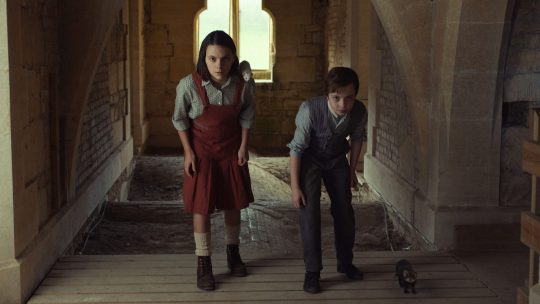
They also made her relationship with Roger more of a focus in the show, which makes sense as her motivation in the later half of the books comes from wanting to rescue him. However, they made him ‘the only friend that she has’ which I found to be a strange decision because Lyra in the books has tuns of friends. I would say their friendship is more balanced in the series, where as in the book it wasn’t so much.
She forgets him a few times while staying with Mrs Coulter in the book where as she remembers him constantly in the episode ‘The Idea of North’ which felt like a confused choice to me. They were trying to have it both ways; have her be seduced by Mrs Coulter while also actively asking her to look for Roger.
The imbalance in Roger and Lyra’s friendship is important because it adds to the need to set things right with him in The Land of the Dead. It goes to the core of how everyone thinks she is selfish. She needs to save Roger to prove to herself she’s a good person.
In the book, when Lyra dreams of Roger in The Land of the Dead, the two of them have constant talks of how much he’s suffering. In the show, she just has alot of ambiguous flash forward dreams of Roger, with the story not prioritising them as important as the main plot of ‘Asriel’s War’.
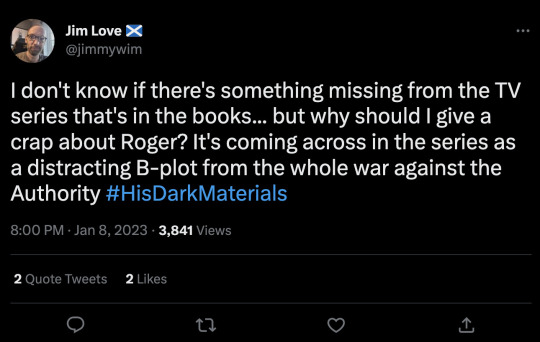
When she brings this up to Will in the episode, he dismisses it instead of agreeing to go (like in the book) because of his daddy issues, no I’m sorry, because of Asriel’s War which makes sense as it’s one of the main plots in the season — where it was more of a distracting B plot in the book — but it just kind of adds to the idea that “its unnecessary” or “why are they doing this?”.
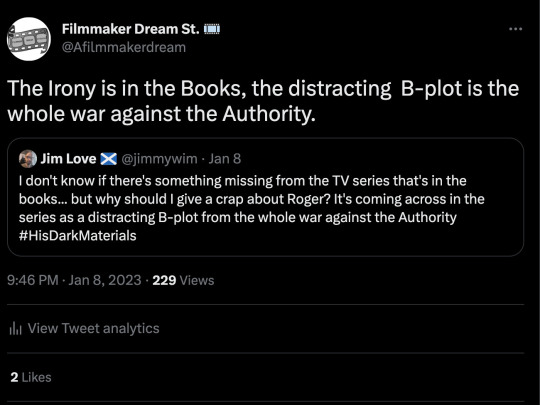
The desire to get to Roger and apologise in the show doesn’t hit as hard because there was more of a balance in Lyra and Rogers relationship plus the changes to her character just made it seem like “she just wanted to do it” rather than it being the most important decision she ever makes, to try to better herself.
While they go to the suburbs of the dead, Will and Pan constantly question why she’s doing this (a conflict that was not in the book — Will is steadfastly loyal to her by this point and Pan is too shivery to speak) while Lyra just snaps at them, making her seem mean for no reason. When she has a chat with her death, she doesn’t lie that an angel told her to do it (because they didn’t establish her as a liar properly), she just says that she wants to be good which is not a convincing argument considering what happens next.
When Pan and her have the argument while she leaves him on the doc, which is a great scene on its own (it made me cry), it also adds to the unnecessary nature of it all. It’s a scene that makes sense in the book because of Lyra’s impulsive nature, but because of her seemingly calculative nature in the show, it just looks odd. It’s described in the book that if Lyra had heard Pan speak, she would have folded and never would of got on the boat, but since the show did the complete opposite of that, It makes the scene more harsh and cold.
I think what the writers were trying to do was make it more of a mystery like ‘why is she doing this’ ‘its not too late to turn around’ a mission that appears fruitless at first, but turns out to be the greatest act of humanity — but again, I still don’t think that works because of how much Lyra’s entire character is changed. The act is not just for everyone else. It’s a major step in her character growth, to care about others.
In the Land of the Dead, obviously they had to cut out the whole section where Lyra literally looses her ability to lie while she’s telling lies to the harpies, then learns to tell the truth to the dead. This is the final step for Lyra’s character, finally learning the power of telling the truth instead of lies. They didn’t replace that with anything, only with her telling the dead true stories, which was heartwarming on its own, but obviously those story beats don’t hit as hard in the same way because like I said, its not presented as the final step in her character growth, its presented as a one off scene. This is one of the reasons why her character is pretty static in the adaptation.
In the Land of the Dead, its Lyra for the most part (apart from one instance) that keeps a cool head, while Will looses his — which again, the complete opposite. In the books, its Lyra that goes off the rails and its Will that keeps her centred.
Which brings me onto how the character of Will is changed in the adaptation, and how that effects the story from the second book onwards.
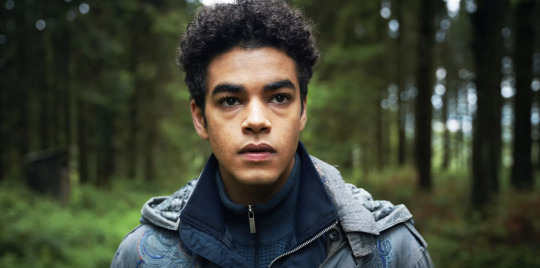
Will was brought in by Philip Pullman in ‘The Subtle Knife’, to represent Lyra’s other half — in another parallel universe literally, and also to help her on her quest to fulfil the prophecy. If it was just her on her own with Pan, it wouldn’t work and would fail.
Though I was taken aback by his entrance in ‘The Subtle Knife’ — as it was such a jarring change coming from the suspenseful cliff hanger where Lyra walks into the new world after her best friend Roger got murdered — he quickly but surely became my favourite male literary character of all time.
I don’t have as a big of a problem with his character changes then I do with Lyra, because there were at least a few times in the show where he was allowed to act like ‘himself’. Amir Wilson was perfect casting as Will. It was like the character had just walked off the page it was that good. But all together, he’s a completely different character — which I can understand. Out of all the characters, I feel he’s the hardest to pin down and his development is done in a subtle and subconscious way.
Throughout the course of ‘The Subtle Knife’, he’s incredibly off putting as he’s mostly angry and tired and then he’s in pain because of his knife wound. It works in a book format, because your’e in his point of view and you understand that he’s a child thats at the end of his tether. But it would be hard to portray that in a nuanced way on screen, unless your’e clever with it.
They unfortunately took the easy route with his characterisation on screen by making him softer. Not only that, the writing for his character was incredibly inconsistent at times.
Will from the books is fierce. He’s frightening. He’s stoic. He gets angry. He’s a strategist. He does whats best for someone. He likes to stay invisible. He’s sarcastic. He’s an introvert. He likes to stay hidden. He’s practical. He’s a child carer. He’s naturally aggressive e.g. He beat up a bunch of boys at school because they were hurting his mother. He hardly smiles. At times, especially in the second book, he becomes incredibly depressed. He’s pretty much a 35 year old man in a young boy’s body. He’s incredibly soft, but the reader can’t tell until Lyra brings that out in him.
I would say Will is a more contained version of Lyra, yet the complete opposite of her. They’re like yin and yang. They both have something that the other lacks, and that helps them both grow up. Lyra brings out a softness out in him, brings out his impulsive nature where as he helps her strategise and learn not to just rush out and do things.
TV Will suffers from the same problem that TV Lyra does.
Every negative/positive aspect about him is watered down. Revealing a quite mild character. I feel that they didn’t touch on the fact that he was a child carer enough, which is a huge part of his character. It just came off as ‘he loves his mum’ more in the show. Will being a caterer is supposed to contrast Lyra whom didn’t grow up with parents and got to live out a childhood that he was never allowed to experience. This is a theme. Every character trait that contrasts Lyra in the books isn’t present so much. I would even go as far to say that they’re too similar in the TV Show.
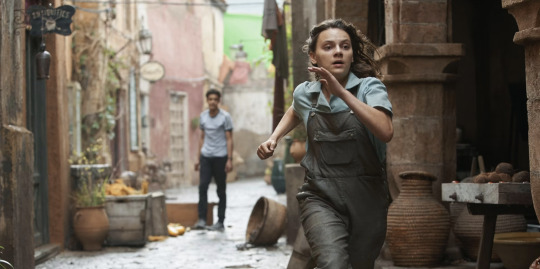
I was wondering throughout the second season why the storyline was static and wasn’t going anywhere. Certain plot points such as Will being a murderer, Lyra helping Will find his father, The fight for the subtle knife and Will becoming the bearer of the Subtle Knife felt tacked on or weren’t hitting as hard as they should.
At first, I thought it was because the novel was ‘the weakest in the trilogy’. I often see ‘The Subtle Knife’ as a bridge between both ‘Northern Lights’ and ‘The Amber Spyglass’.
But since re-reading the book, I went ‘Oh my God, its because they changed Will’s character arc’.
TV Will, the more I think about it, does not suit becoming the bearer of the subtle knife. The only times we see him fighting is in the boxing ring. He expresses incredible regret over killing a man instead of brushing it off because he was protecting his mother. Even when he’s under threat, he says ‘I don’t want to hurt you’ He even has to be persuaded to fight. There’s even a moment in the show where he says “Maybe we’re better off not fixing the knife at all.” which kind of dismisses the practical nature of his character in the book. Plus the knife being a part of him, the same way as the Alethiometer is a part of Lyra. Even the remarks that Lyra makes about him being similar to Iorek the armoured Bear don’t make as much sense, because of the fact that he’s softer.
Book Will struggles with his warrior nature, and eventually learns thats not who he wants to be. But he isn’t naturally a soft person. He learns to be through his experiences and his relationship with Lyra. Which is why it was so odd to me that they included the line in the show where Will is saying to his father in the Land of the Dead “You told me that I was a warrior; That I can’t fight my nature. Your’e wrong.” I was just like, what are you talking about? That is so not the character the show had developed. TV Will had hardly been shown to fight anyone of his own free will — it didn’t make sense to me. They were trying to have it both ways. Completely ignoring his basic character traits and flaws, yet still going through the same arc (a somewhat watered down one) one e.g. idolising his dad for his whole life, realising his dad ain’t shit when he meets him, finding Lyra missing, ignoring the task his father set him etc.
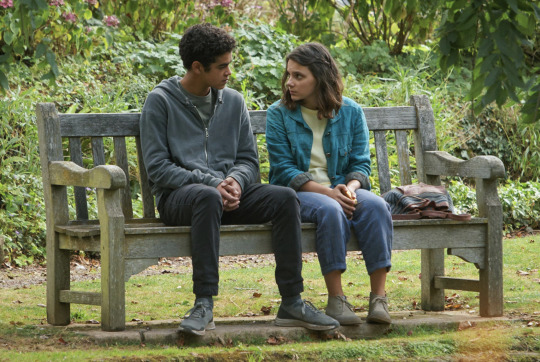
Even the task that Lyra has to help Will find his father didn’t land as well because of the fact that the two of them were bonding straight away in the show, instead of it being like ‘oh no we’re stuck with each other’ to this slow process of her and Will learning to trust each other.
I understand that you have to translate Lyra and Will’s relationship alot differently in a Show format, because subconscious development doesn’t really work due to the lack of intimate point of views. Plus it adds to the narrative to flesh out their dynamic alot more on screen. The more something is changed in an adaptation, the more it stays the same.
I have openly praised the shows depiction of their relationship in another analysis I wrote (before i re-read the books) and how I loved how they gave them more soft moments. However, I will admit now that the soft moments that they had in season 2 felt off to me because they weren’t in character. I think, looking back I would of preferred more soft moments if they were in character.
Will’s initial softness towards Lyra in the show is partially to do with TV Lyra being much less feral and less of a threat. As a result their journey is warmer and far less angstier than it was in the books.
And that in turn messes with the tension.
The element of Will being slightly dismissive of her at the start, is important to how certain story beats land. It adds to the ‘OH SHIT’ when Lyra’s been taken and the task that his father set him that he’s been dreaming of his whole life suddenly isn’t important to him anymore. Thats why it’s such a big deal when he spends most of his time through ‘The Amber Spyglass’ looking for her.
But in the season 2 finale, it ends with Will going off into the sunset, presumably to fulfil is fathers wishes. Then in season 3, he finds her missing, goes ‘whoops’ and then there’s a montage of him trying to find her. Then when he does (quite easily) — he goes on about how “since his dad died he’s done none of the things that he asked him to do’ which makes him looking for Lyra within the show feel even more anticlimactic.
Also, this is more of a personal opinion that an analytical one, I did not appreciate when Lyra brought up going to the Land of The Dead, TV Will went “I saved you. I did everything I could to save you. You told me not to but I did it anyway” which felt to me like ‘Wow brilliant, of course you had to save her’
And instead of agreeing to go to the Land of the Dead with her like in the book, they had to insert some tension from ‘The Subtle Knife’ (because they messed with the tension in season 2) and have Will go on a rant about what his dad wanted him to do, Asriel’s war, dismissing Lyra’s wishes and even having him suggest maybe her dad regretted killing her friend.
This is something that Will from the books would never ever say, let alone to the girl that he loves. He’s fully aware how much her dad hurt her and he respects her too much by that point to ever suggest something like that. Even when he does think about ‘what his dad wanted him to do’ he’s still steadfastly loyal to Lyra. They were completely undermining the turning point in their relationship and Will’s character development by adding pointless drama to extend the episodes running time.
As mentioned in a very articulate post by @mamsellechosette24601 ‘the quest to find his father and fulfil his fathers wishes’ isn’t the point at all, its Will letting go of his childhood dreams, of realising what really matters is Lyra all along.
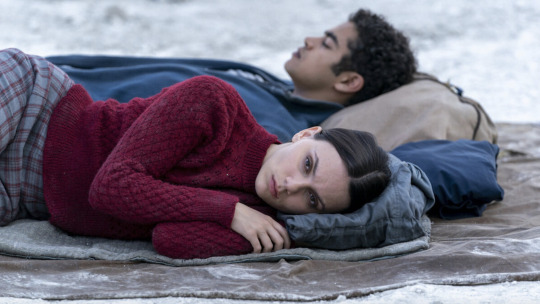
Now I’ve seen in another analysis of the adaptation that their path to falling in love in the show is alot clearer than in the books which I can understand and agree with (to a certain extent) because the books were much more concerned with philosophy than romance. This is true for the romance between Asriel and Marisa in the Book vs the TV Show as well.
The concept behind their relationship remains the same:
“Will and Lyra are very good people who learn to trust each other when they’re at their most vulnerable, they become the only thing they have in a terrifying world of enemies. By the end, when they realise they're in love only to discover they can never be together, they make the mature choice, however hard it may be.”
But their relationship is totally different in the TV Show because of their character changes.
I would say Lyra and Will have more of a enemies to lovers storyline in the books — where as the adaptation version of them doesn’t. The screenwriters clearly tried to iron out alot of the problematic elements, especially in the beginning and focus on them being “friends” more. I’m not apposed to them doing that, but the way they did it ended up muting a few of their scenes together.
I’ve actually made an argument in my other account (against the ‘His Dark Materials’ analysis saying that ‘the adaptation did a much better job at showing when Will and Lyra fell in love’) that their relationship development was a lot subtler in the books because the characters were alot younger and more immature. And that it was more ‘obvious’ in the tv show because they aged the characters up, therefore they could have more mature conversations and scenes together.
This was before I did my re-read.
After re-reading ‘The Subtle Knife’ and ‘The Amber Spyglass’ comparing it with how their relationship is handled in the TV Adaptation. I would actually argue the opposite .
In some ways, the growing romance between the two of them is much more mature (and makes more sense) in the books than in the show, at least to me. Unlike in the TV Show, their relationship never enters into neutral territory, even when they finally learn to trust each other. Theres much less emphasis on their ‘friendship’.
After their brutal first meeting — where they attack eachother — in ‘The Subtle Knife’ Lyra is immediately taken with Will and constantly thinks about him and what he thinks of her. There’s even a moment in ‘The Amber Spyglass’ where she’s trying to hide that she’s in pain while they’re walking (because of all that time she’s been asleep) because she doesn’t want to appear weak in front of him.
The way Lyra and Will meet in the show, is reminiscent of how children meet for the first time. Though quite skeptical of each other, they instantly bond and make friends after 5 seconds, because why wouldn’t they? They’re kids the same age after all. Even though there’s still an element of mistrust there, there’s hardly any conflict between them. They don’t play off each other as much. There is one moment where he gets angry at her for making him wait, but all that is solved in a minute because of Lyra’s ‘calm nature’
Even when Lyra gives Will away by accident and says that she lost the Alethiometer, he doesn’t shout at her. There are few comments here and there but theres no real tension between the two of them.
When Will and Pan have a conversation, its presented as Pan going up to him to have a chat after he had a bad dream rather than Will finding the courage to speak to him in the book and saying ‘I think Lyra’s the best friend I’ve ever had’. This is presented more as a statement in the show because their friendship has already been established and less of a discovery (as he wasn’t reacting to her that much in the book as he had alot on his mind).
Lyra and Will even have a talk about Pan’s conversation with him afterwards in the show. But in the book, that never happened. It’s mentioned later but never discussed, because of the fact that it was a private conversation between Will and Pan.
You could say this was another problem that the adaptation had. It’s mentioned multiple times ‘YOU CAN’T TOUCH SOMEONES DAEMON’ but not emphasised why thats the case.
In the books, it’s heavily implied that touching someone else’s daemon is the equivalent of touching someone’s genitals. There’s a moment in ‘Northern Lights’ where Lyra and Iorek find Tony in the fish house without a daemon and Pan wants to comfort him but holds back because of the taboo. Thats why it’s such a big deal when Pan comforts Will and starts licking him in the book.
In the show, its quite an underwhelming scene that lasts 5 seconds where Pan strokes Wills fingers and Lyra says in a quiet voice ‘In my world, your’e not supposed to touch someone else’s daemon but you didn’t do something wrong’
And don’t get me started on the 5 second panning away shot where they’re finally touching each others daemons, instead of the moving moment from the book. It didn’t feel like they really understood the gravity of what those scenes meant and what it meant for their connection.
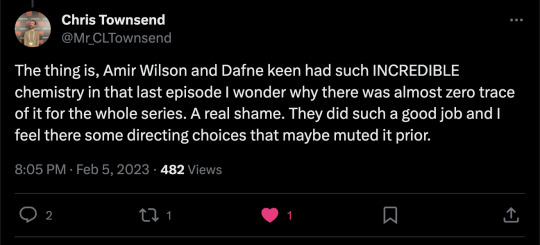
Again, this is more of a personal opinion. Near the end of the final book, when they enter the world of the Mulefa, Lyra and Will trust each other more than they ever have, which shows how much they’ve both grown since ‘The Subtle Knife’. Mary even describes that she never saw ‘more trust on a persons face’. But in the show, there’s this weird forced tension between them for the sake of ‘romance’. They’re suddenly awkward teenagers with each other — which was not a choice that I liked because it didn’t come naturally.
And when they have to be ripped from each other, a whole page worth of them bargaining to be together is turned into ‘I didn’t think it was possible to feel this bad.’ and ‘This is all wrong’, plus Mary and Serafina being weirdly insensitive while Will and Lyra are in different locations rather than being with each other.
This is possibly why I didn’t feel anything when they had to be forced apart because, the way it was handled felt rushed and soulless.
Overall, despite there being more ‘soft moments between the two of them’ Show Lyra and Will’s connection feels alot more shallow and simplified.
In the books, I got the vibe that even though they were very young, you couldn’t imagine them being with anyone else but with each other. They were each others other half. They were essentially the only family they had in a world full of enemies. There was never a moment in the books, where they weren’t already in love with each other to some degree. It went beyond the typical romantic duality.
In the show, it felt more temporary. This is mostly due to their character changes (they were too similar in my opinion). Like a connection between friends that became romantic at the end of the journey. And it’s something they’ll get over because “It won’t always feel like this” or “Its much more romantic to live for love than to die for it” or “It might not seem like it now but you have a future”
I think that was one of my main problems with the TV Show, it lacked emotion. Not just as an adaptation, but in general.
More than anything, the adaptation felt too confused. It was trying to reimagine the story while also paying homage to the original material. And thats why overall — despite my enjoyment for some of the episodes especially in season 3 — it didn’t work as well as it should have.
#reposting this review in the tag#bbc his dark materials#lyra belacqua#lyra x will#will parry#his dark materials#philip pullman#book#hdm#review#hdm spoilers#lyra silvertongue#hdm shit post#tv show#analysis#jack thorne#dafne keen#amir wilson#will x lyra#hdmedit#adaptation#novels#Trilogy#hbo his dark materials#hbo#bbc#tv review#silverparry#panjava#romance
67 notes
·
View notes
Text


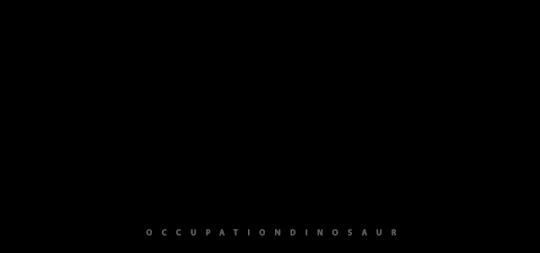
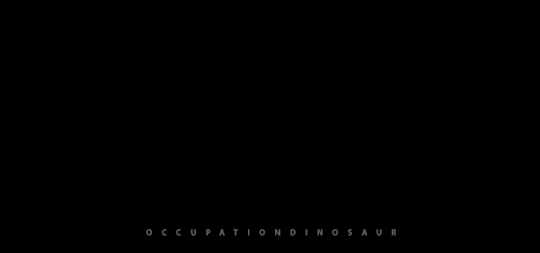
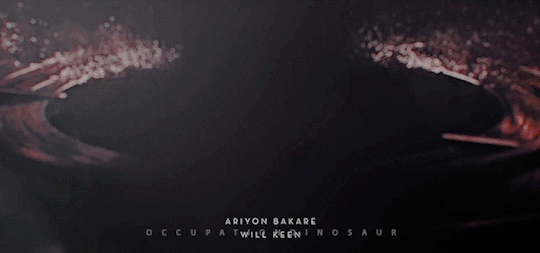
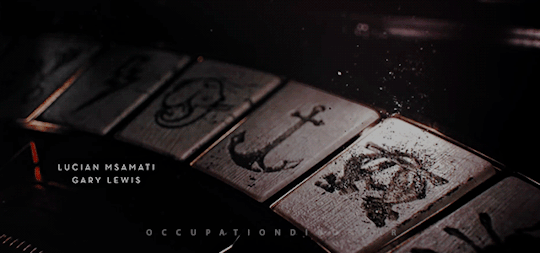
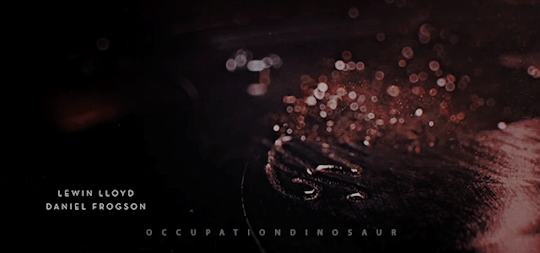

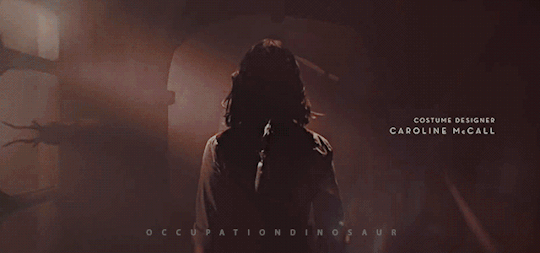
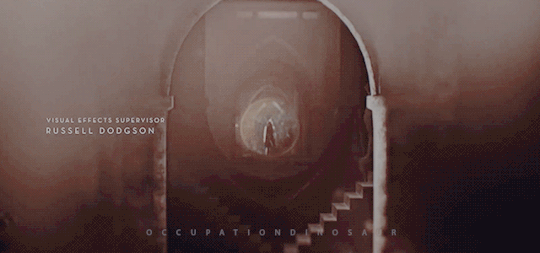



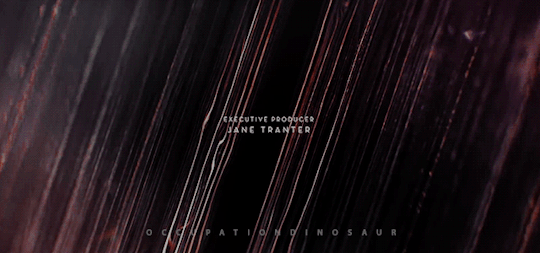
🡒 🎥 HIS DARK MATERIALS • Tv series, Jack Thorne • Opening Credits, 2019-2022.
«Our Lives Are Beautiful And Precious, And We Should Be Allowed To Experience All They Have To Offer Without The Fear Of Retribution.»
#his dark materials#his dark materials gif#jack thorne#tv series#opening credits gif#opening credits#computer graphics#3d graphics#im in love#HBO#Philip Pullman#BBC#gif set#gif#my gif#occupationdinosaurgif#2019#2022
21 notes
·
View notes
Text
on philip pullman's approach to analyzing human nature vs jack thorne's
(posting here per request since the conversation on discord got, uh, distracted before i could put my thoughts into words)
bbc/hbo's his dark materials has expended on a lot of characters and plotlines that were only hinted at - or did not exist at all in many instances - in the his dark materials book trilogy. one of the characters that was impacted by that a lot - if not the most of the whole cast - is mrs. marisa coulter. and while many media outlets and fans alike have been very pleased with the show's version of marisa in comparison with the book version (and i'm referring specifically and strictly how she was written, not how she's portrayed by ruth wilson), many of us on the discord server have felt that jack thorne's spin on the character resulted in major changes to her personality, to the worse. it's a huge topic (which i love discussing but don't want to focus on too much in this post) but in short, many of us are in opinion that jack thorne's marisa coulter is significantly humanized and mellowed compared to philip pullman's, more palatable and more relatable... and thus considerably less fascinating and captivating than the books' version.
the thing about this is that i don't think this is something that's exclusive to thorne's interpretation of marisa. i think it's a trend that you can see in nearly all of the characters in the his dark materials tv show - especially the ones that were explored more deeply than in the books. i can see it with lyra, asriel, boreal - even will. and i think you can put it all down to a very basic approach to exploring and writing basic human nature that's vastly different between pullman and thorne.
with pullman's writing, i think he finds fascination in how different humans are from each other. pullman says: humanity is so varied; there are so many types of personalities; people can be really extreme; it's so interesting to explore the human nature in its weirdest and most unlikable, looking directly at the aspects people would rather not expose. lyra, the protagonist, possesses many traditionally unlikable characteristics: she's a liar, she's rude, she's arrogant, she's blunt. asriel sets out to save humanity but he's far from a good person. he doesn't see all humans as equal; he sees roger as a tool to reach his means rather than a living person; he resents his daughter for being a unruly street urchin rather than an elegant scholar like himself and her mother. he berates marisa when she obtains traits he sees as inferior (her love for lyra, which he can't understand). and marisa herself... powerful and power-hungry and ruthful and remorseless. slick and skillfully manipulative. she knows the games in the society that she lives in and she plays them masterfully. those are the characters pullman writes and explores. and not one of them is more or less human than the other. they're people; and "good" and "bad" are names we give to the things they do or the choices they make.
thorne's approach is no less thoughtful, but is significantly different. characters start off as having seemingly polarized traits, yes. but as thorne digs deeper, he finds that they have a lot in common with the perceived idea of an everyday person, and you can see that very early on in the show. asriel sincerely apologizes to lyra for not being able to spare more time and attention for her, and (infamously) declares that "everyone's special!"; marisa seems to form an emotional bond or attachment to lyra nearly as soon as the girl hugs her in jordan college (because who doesn't feel touched when being hugged by a grateful kid, right?); as she watches the severed children being rescued and shown affection in bolvangar, she looks stricken by remorse; she refuses asriel's offer to cross the bridge together because she feels committed to their child, not because of the magisterium. then in season 2, thorne invents a new side of marisa - a woman oppressed by a patriarchal society. she was oppressed as a scholar due to being a woman (in the books, female scholars were far from unheard of; marisa was a member of sofia's college, an all-women institution); she stares with longing at a woman working on a laptop while caring for a baby in a stroller; she's obviously jealous of mary. what woman can't relate to that, in this era of fourth wave feminism? then, as she faces lee scoresby - beaten and shackled and still gaining the emotional higher ground by appealing to marisa's (the master manipulator, the skilled torturer) emotions for her child - and he deduces that she was endured parental abuse as a child (which wasn't hinted at in the slightest in the books - in the book of dust we meet her mother, who's a terrible person but adores and idolizes her daughter to a fault). and of course that would tug at the audience's heartstrings - because how can you not understand marisa's vulnerability? how can you not feel bad for her, learning about the abuse she endured? this is jack thorne's way of exploring characters and filling up gaps in their stories. this is his way of exploring humans. "deep down, we all have shared experiences and feelings." the more you learn about his characters, the more relatable they are. they become more palatable to the average viewer.
these are the two approaches, and neither of them are inherently wrong or bad. but they're profoundly different. and they create different characters.
and what we keep coming back to and complaining about on the discord server - specifically in the context of marisa but i do think other characters suffer from it too - that, compared to pullman's characterizations, the result is just... well, boring. or at least disappointing. because what draws many of us to marisa, what makes her so magnetic and unique and unforgettable, was never her being relatable. in the books she's very unapologetically a horrible person; the show feels like it keeps making up excuses and apologies for her horrible deeds (so much that it even neuters just how terrible some of them were). the uncompromising extremes in her personality and her choices are exactly what make her so utterly fascinating and unusual. without excuses or explanations that would make her actions make more sense to the average reader. you rarely ever think "i'd have felt exactly the same! i'd have done exactly the same! i can perfectly understand her motivation here!" yet thorne tries to make you think exactly that. and it's not wrong. i'd have loved it a ton if i were a show-only fan. but when you compare it to pullman's version - its intensity and spectacle, the heights and perils the story reaches with characters that are masterfully created as both extreme and human without compromise - thorne's is just ever so... dull.
and i honestly think the show would've been better and more successful if thorne didn't shy away from letting the characters be unrelatable. there seemed to have been intense concern in making the characters more easily digestible to as wide an audience as possible; and ironically i think that has caused the story to lose a ton of its initial appeal. and i think the same worry was applied to thorne's handling of the plot; and the show suffered massively for that too; but that's a topic for a different post.
#his dark materials#marisa coulter#mrs coulter#philip pullman#jack thorne#the golden compass#the subtle knife#the amber spyglass#cozcat#(because you've asked me to post it#it turned out even longer than my message on the server daslghsdoighasd#i'm sorry i just find the topic so fascinating and intricate#and i could talk about it even more#but this will do for now)
218 notes
·
View notes
Text
youtube
#shakespeare#william shakespeare#national theatre#motive and the cue#jack thorne#theater#theatre#mark gatiss#hamlet#richard burton#Youtube
20 notes
·
View notes
Text
New Netflix crime drama Adolescence, which comes from Stephen Graham and Jack Thorne, has now announced its cast, with Graham starring alongside Top Boy's Ashley Walters and The Crown's Erin Doherty.
They will be joined in the four-part series by newcomer Owen Cooper, Faye Marsay (Doctor Who), Christine Tremarco (The Responder), Mark Stanley (Happy Valley), Jo Hartley (Passenger) and newcomer Amélie Pease.
The official synopsis for the series has now also been released, and it reads as follows: "Adolescence tells the story of how a family’s world is turned upside down when 13-year-old Jamie Miller (Owen Cooper) is arrested and charged with the murder of a teenage girl who goes to his school.
"Stephen Graham will play Jamie’s father and 'appropriate adult', Eddie Miller. Ashley Walters stars as Detective Inspector Luke Bascombe, and Erin Doherty is Briony Ariston, the clinical psychologist assigned to Jamie’s case."
Each episode of the show will be filmed in one unflinching continuous shot, holding focus on the main characters and the drama as it unfolds in real time.
#adolescence#faye marsay#casting news#press#jack thorne#stephen graham#ashley walters#erin doherty#owen cooper#christine tremarco#mark stanley#jo hartley#amelie pease#yay for faye#adolescence netflix uk
4 notes
·
View notes
Text
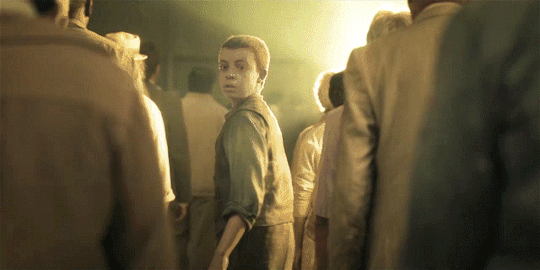


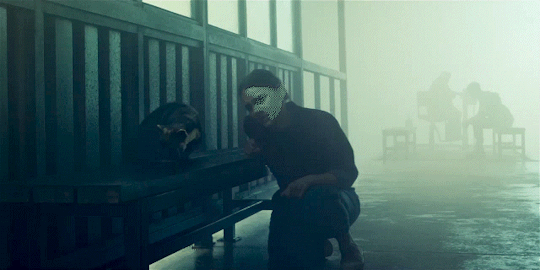


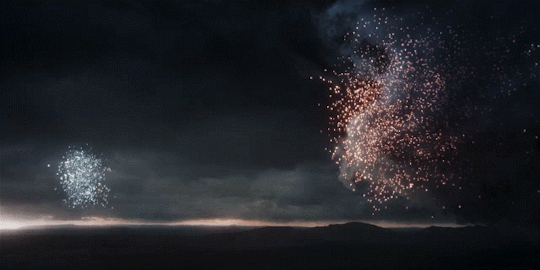

His Dark Materials | Season 3 (2022), Jack Thorne
#his dark materials#hdm#jack thorne#i really really wish i liked this more#i love the books#and this show was clearly more... everything than that horrible movie they made#but it never completely convinced me#something about the tone the cinematography the acting was just deeply not my thing#tv shows i watched in 2023#i made this#i just want a tag for the things i personally put out into the world
62 notes
·
View notes
Text

Moon is eager to start the Holiday Cheers with spark in his eyes.
Check out this new still of "An Almost Christmas Story" streaming November 15 on Disney+ . 🎄✨🦉
#An Almost Christmas Story#David Lowery#Jack Thorne#Gabriela Rodríguez#Alfonso Cuarón#Titmouse Inc#Esperanto Filmoj#Maere Studios#88 Pictures#Disney Television Animation Shorts#Disney TVA Shorts#Disney+#Disney Plus#Disney+ Original Shorts#Disney Plus Original Shorts#Disney+ Original Animated Shorts#Disney Plus Original Animated Shorts
15 notes
·
View notes
Text
Joy (12A): Unbridled Joy From the Development of IVF Treatment.
One Mann's Movies Film Review of "Joy". A solid British film documenting the emotional creation of IVF treatment. 3.5/5.
A One Mann’s Movies review of “Joy” (2024) (From the 2024 London Film Festival). This movie is NOT to be confused with the 2015 Jennifer Lawrence film “Joy“. There are no mops in sight here! We are instead in the UK of the late 1960’s here and the development of the now-familiar and common-place IVF treatment. This led to the birth of the world’s first ‘test-tube baby’, Louise Brown. I was…
#Ben Taylor#Bill Nighy#bob-the-movie-man#bobthemovieman#Cinema#Emma Gordon#Film#film review#Jack Thorne#James Norton#Joanna Scanlan#Joy#Louise Brown#Movie#Movie Review#One Man&039;s Movies#One Mann&039;s Movies#onemannsmovies#onemansmovies#Rachel Mason#Review#Rish Shah#Shaun Topp#Tanya Moodie#Thomasin McKenzie
2 notes
·
View notes
Text

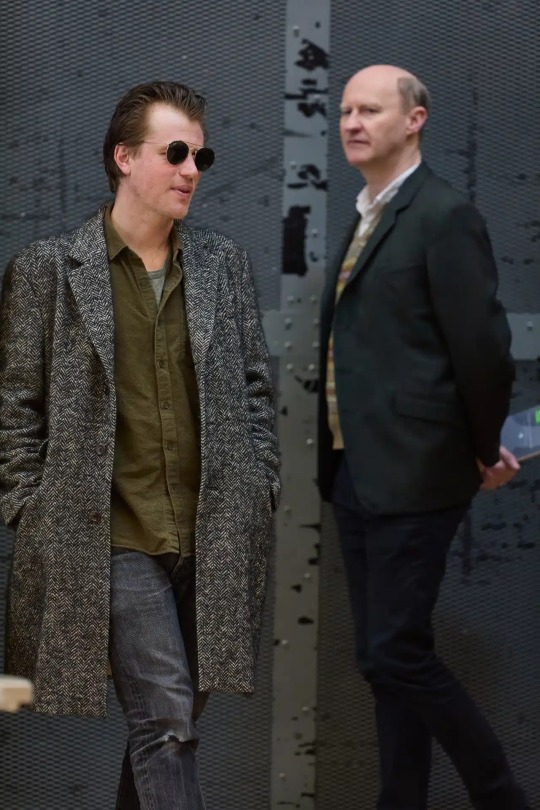



Photos: Rehearsals of The Motive and the Cue
#the motive and the cue#Johnny Flynn#mark gatiss#Tuppence Middleton#Sam Mendes#jack thorne#national theatre
47 notes
·
View notes